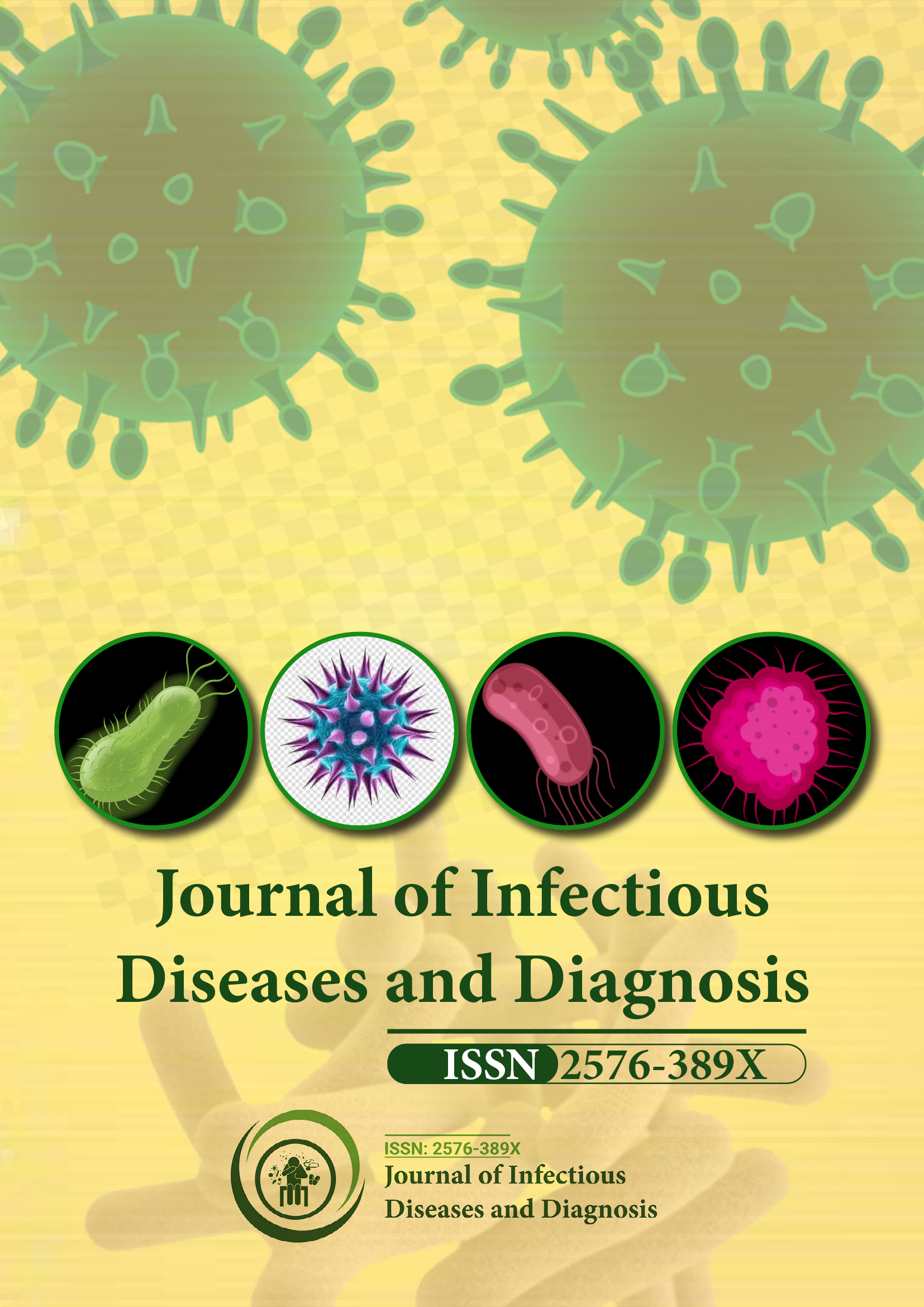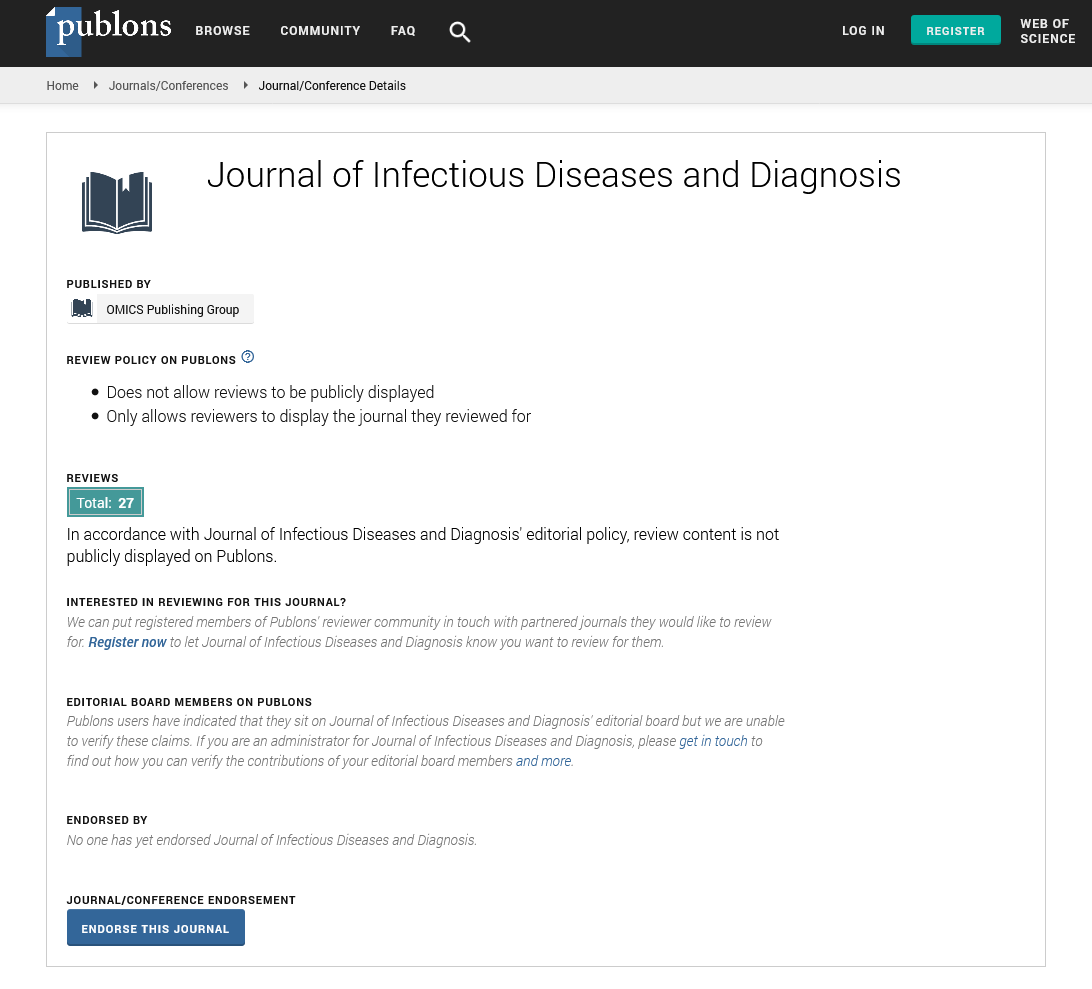Indexed In
- RefSeek
- Hamdard University
- EBSCO A-Z
- Publons
- Euro Pub
- Google Scholar
Useful Links
Share This Page
Journal Flyer

Open Access Journals
- Agri and Aquaculture
- Biochemistry
- Bioinformatics & Systems Biology
- Business & Management
- Chemistry
- Clinical Sciences
- Engineering
- Food & Nutrition
- General Science
- Genetics & Molecular Biology
- Immunology & Microbiology
- Medical Sciences
- Neuroscience & Psychology
- Nursing & Health Care
- Pharmaceutical Sciences
Commentary - (2023) Volume 8, Issue 5
Mutations to Immunity: Examining the Impact of Omicron on SARS-CoV-2 Vaccine-Induced Antibodies
Teresa Oliveira*Received: 04-Sep-2023, Manuscript No. JIDD-23-23528; Editor assigned: 06-Sep-2023, Pre QC No. JIDD-23-23528 (PQ); Reviewed: 20-Sep-2023, QC No. JIDD-23-23528; Revised: 27-Sep-2023, Manuscript No. JIDD-23-23528 (R); Published: 04-Oct-2023, DOI: 10.35248/2576-389X.23.08.234
Description
As the COVID-19 pandemic relentlessly unfolds, the virus SARS-CoV-2 continues to shape-shift, producing variants that challenge our collective efforts to combat it. One such variant, Omicron (B.1.1.529), stands out for its sheer number of mutations, notably within the spike protein. With Omicron's arrival, questions regarding the efficacy of our existing vaccines have loomed large.
First identified in South Africa in November 2021, the Omicron variant quickly gained notoriety for its extensive mutations, especially within the spike protein, the target of most COVID-19 vaccines. This raised alarms about the possibility of Omicron evading immune responses and compromising the effectiveness of vaccination campaigns.
However, as the scientific community delved deeper into Omicron's intricacies, it became apparent that the situation was far from straightforward. The variant's unique mutations posed a potential threat, but the response of existing immunity, particularly vaccine-induced immunity, remained an essential piece of the puzzle.
The fundamental of our global strategy to combat COVID-19 lies in vaccination campaigns that have sought to prime our immune systems against the virus. These vaccines typically employ a piece of the spike protein or the messenger RNA (mRNA) encoding it, prompting the body to produce antibodies that recognize and neutralize the virus.
However, the spike protein's mutations in the Omicron variant led to concerns that these antibodies might be less effective in fending off infection. This notion prompted intensive research into the interplay between vaccine-induced antibodies and Omicron, with particular focus on the vaccine platforms.
Among the various COVID-19 vaccines, mRNA vaccines, such as Pfizer-BioNTech and Moderna, have garnered attention for their effectiveness in generating robust immune responses. Studies examining the performance of mRNA vaccines against Omicron have revealed a complex yet encouraging narrative.
Though that some neutralizing antibodies generated by these vaccines appear to have reduced effectiveness against Omicron, these vaccines still offer substantial protection. mRNA vaccines stimulate a diverse array of antibodies, and some of them maintain their ability to recognize and neutralize the Omicron variant effectively. The broader immune response generated by mRNA vaccines, including T-cell immunity, may also play a significant role in mitigating the severity of Omicron infections.
In this sense, mRNA vaccines serve as a testament to the adaptability of the immune system, which can still set a formidable defense against a virus that has undergone significant mutations. While the potency of individual antibodies might disappear in the face of Omicron, the collective immune response remains a potent weapon.
Beyond mRNA vaccines, adenovirus-vector vaccines like AstraZeneca and Johnson & Johnson's Janssen vaccine have also demonstrated their worth in the fight against COVID-19. These vaccines use a different approach by introducing a viral vector, in this case, an adenovirus, to deliver the spike protein's genetic information.
Research indicates that these vaccines may offer somewhat reduced protection against Omicron compared to the original strain of SARS-CoV-2. However, they still exhibit a major ability to prevent severe disease and hospitalization, underscoring their continued value in preventing COVID-19's worst outcomes.
One of the most immediate responses to the Omicron threat has been the rapid rollout of booster shots. These additional vaccine doses aim to bolster the immune response, providing an extra layer of protection, particularly against Omicron. It's essential to recognize that vaccine-induced immunity is not the supprort against Omicron. Individuals who have previously been infected with SARS-CoV-2 and have developed natural immunity may also possess a degree of protection against the variant.
We must also recognize that vaccine-induced immunity, while a critical tool, is just one aspect of our pandemic response. Public health measures, such as mask-wearing, social distancing, and improved ventilation, continue to play vital roles in reducing transmission, regardless of the variant in circulation.
Conclusion
The relationship between SARS-CoV-2 vaccine-induced antibodies and Omicron is a complex one, marked by a dynamic interplay between the virus's mutations and our immune responses. Whilesome challenges remain, the evidence suggests that our existing vaccines, particularly mRNA vaccines, remain valuable tools in preventing severe disease and reducing the spread of Omicron.
The introduction of booster shots further strengthens our defenses and underscores the adaptability of our vaccine strategies. As we move forward, it's essential to maintain a holistic approach to pandemic management, combining vaccination efforts with public health measures and ongoing research. In this ever-evolving battle against a relentless adversary, the tenacity of science, public health, and human resilience must continue to shine through.
Citation: Oliveira T (2023) Mutations to Immunity: Examining the Impact of Omicron on SARS-CoV-2 Vaccine-Induced Antibodies. J Infect Dis Diagn. 8:234.
Copyright: © 2023 Oliveira T. This is an open-access article distributed under the terms of the Creative Commons Attribution License, which permits unrestricted use, distribution, and reproduction in any medium, provided the original author and source are credited.

